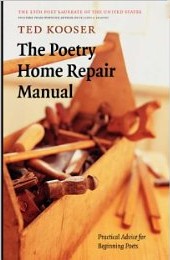
 Highlights of Poetry. Highlights of Poetry.
 Index of poetry. Index of poetry.
 How to Write Poetry. How to Write Poetry.
 Books read.
Books read.
|
How to write specific forms:
 Haibun. Haibun.
 Haiku. Haiku.
 Hay(na)ku. Hay(na)ku.
 Rengay. Rengay.
 Tanka. Tanka.
 Concrete. Concrete.
 Ghazal. Ghazal.
 Lai. Lai.
 Pantoum. Pantoum.
 Prose poem. Prose poem.
 Rondeau. Rondeau.
 Rubáiyát. Rubáiyát.
 Sestina. Sestina.
 Skaldic verse. Skaldic verse.
 Sonnet. Sonnet.
 Terza rima. Terza rima.
 Triolet. Triolet.
 Tritina. Tritina.
 Villanelle. Villanelle.
|
Poets:
 Adam Zagajewski. Adam Zagajewski.
 Billy Collins. Billy Collins.
 Billy Collins exercise. Billy Collins exercise.
 Snorri's Edda. Snorri's Edda.
 Carl Dennis. Carl Dennis.
 Corey Marks. Corey Marks.
 Franz Wright. Franz Wright.
 Gary Young. Gary Young.
 The Gawain Poet. The Gawain Poet.
 J. Zimmerman. J. Zimmerman.
 J. Zimmerman (haiku). J. Zimmerman (haiku).
 J. Zimmerman (tanka). J. Zimmerman (tanka).
 Jack Gilbert. Jack Gilbert.
 Jane Hirshfield. Jane Hirshfield.
 Jorie Graham. Jorie Graham.
 Karen Braucher. Karen Braucher.
 Kay Ryan. Kay Ryan.
Laureate Poets:  Britain; Britain;
 USA. USA.
 Len Anderson. Len Anderson.
 Li-Young Lee. Li-Young Lee.
 Linda Pastan. Linda Pastan.
 Nordic Skalds. Nordic Skalds.
 Pulitzer Poetry Prize (U.S.A). Pulitzer Poetry Prize (U.S.A).
 Richard Hugo. Richard Hugo.
 Robert Bly. Robert Bly.
 Sara Teasdale. Sara Teasdale.
 Sharon Olds. Sharon Olds.
 Snorri's Edda. Snorri's Edda.
 Stephen Dunn. Stephen Dunn.
 Ted Kooser. Ted Kooser.
 W.S. Merwin. W.S. Merwin.
|

|